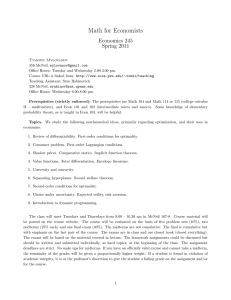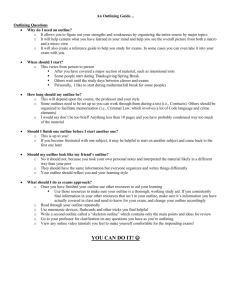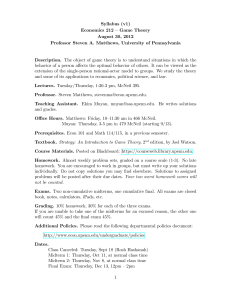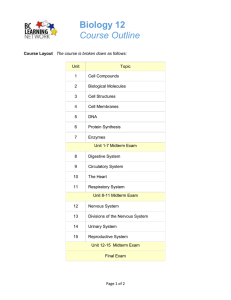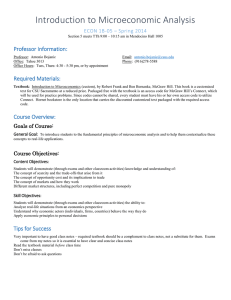ECONOMICS 232-401 Political Economy Spring 2014
advertisement
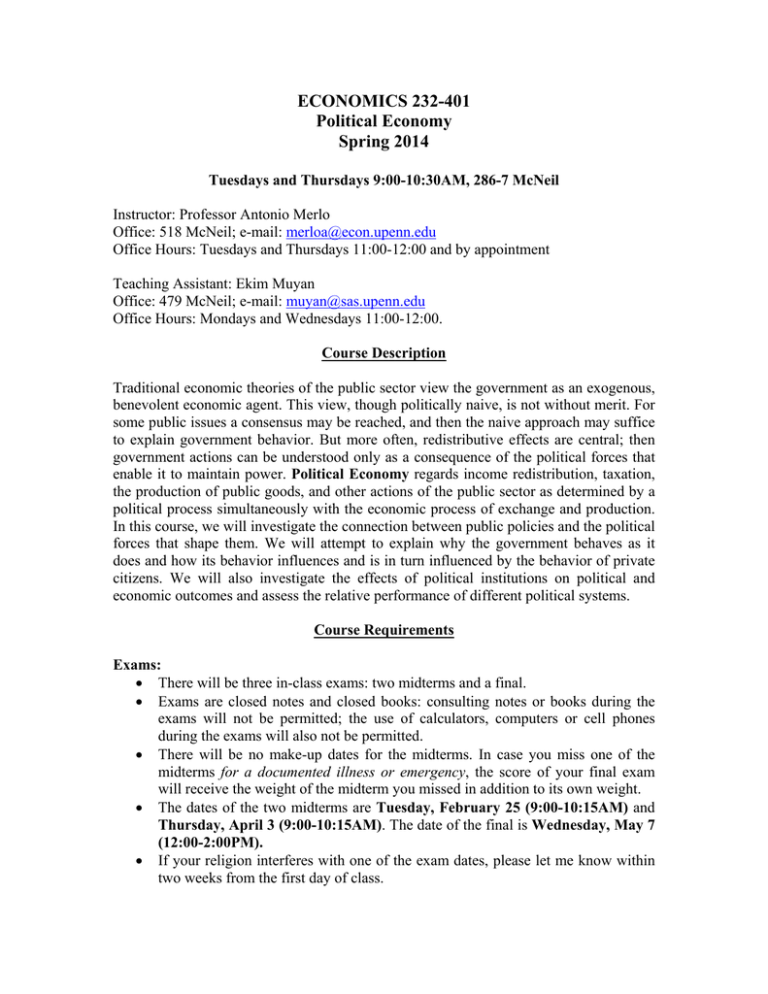
ECONOMICS 232-401 Political Economy Spring 2014 Tuesdays and Thursdays 9:00-10:30AM, 286-7 McNeil Instructor: Professor Antonio Merlo Office: 518 McNeil; e-mail: merloa@econ.upenn.edu Office Hours: Tuesdays and Thursdays 11:00-12:00 and by appointment Teaching Assistant: Ekim Muyan Office: 479 McNeil; e-mail: muyan@sas.upenn.edu Office Hours: Mondays and Wednesdays 11:00-12:00. Course Description Traditional economic theories of the public sector view the government as an exogenous, benevolent economic agent. This view, though politically naive, is not without merit. For some public issues a consensus may be reached, and then the naive approach may suffice to explain government behavior. But more often, redistributive effects are central; then government actions can be understood only as a consequence of the political forces that enable it to maintain power. Political Economy regards income redistribution, taxation, the production of public goods, and other actions of the public sector as determined by a political process simultaneously with the economic process of exchange and production. In this course, we will investigate the connection between public policies and the political forces that shape them. We will attempt to explain why the government behaves as it does and how its behavior influences and is in turn influenced by the behavior of private citizens. We will also investigate the effects of political institutions on political and economic outcomes and assess the relative performance of different political systems. Course Requirements Exams: There will be three in-class exams: two midterms and a final. Exams are closed notes and closed books: consulting notes or books during the exams will not be permitted; the use of calculators, computers or cell phones during the exams will also not be permitted. There will be no make-up dates for the midterms. In case you miss one of the midterms for a documented illness or emergency, the score of your final exam will receive the weight of the midterm you missed in addition to its own weight. The dates of the two midterms are Tuesday, February 25 (9:00-10:15AM) and Thursday, April 3 (9:00-10:15AM). The date of the final is Wednesday, May 7 (12:00-2:00PM). If your religion interferes with one of the exam dates, please let me know within two weeks from the first day of class. Problem Sets: There will be no homework due. However, I will assign six problem sets with solutions. The exercises in the problem sets are an important part of the course, and are similar in nature to the questions in the exams. Grading: The final grade will be determined by the scores in the exams as follows: first midterm 30%, second midterm 30%, final 40%. Prerequisites: Economics 101 General Policies: For all other issues, please refer to the “Departmental Course Policies” at: http://economics.sas.upenn.edu/undergraduate-program/courseinformation/guidelines/policies Textbook The exams will be based on material covered in class and in the homework assignments. The following recommended textbook contains background information and other useful reading material that complements the content of the lectures. o Shepsle, K.A., Analyzing Politics, 2nd Edition, Norton, 2010. Course Outline & Reading List* 1. 2. 3. 4. 5. Overview and Introduction Shepsle, Ch. 1-2 Preliminaries: Basic Tools in Microeconomics Econ 101 textbook Preliminaries: Basic Tools in Political Economy Shepsle, Ch. 3-7 Political Economy of Public Goods Provision Shepsle, Ch. 8-10 Political Economy of Education Shepsle, Ch. 13 6. Political Economy of Redistribution 7. Political Economy of Lobbying * Additional readings may be assigned in class.
